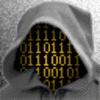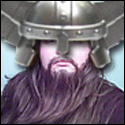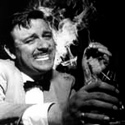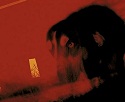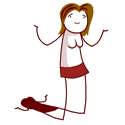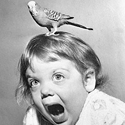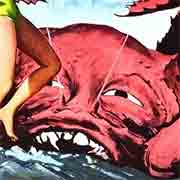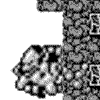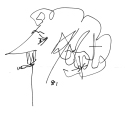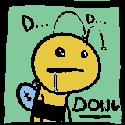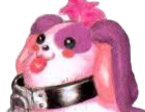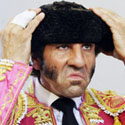|
I just finished reading Barbara Kingsolver's The Poisonwood Bible. I know it's very well-known, but if you haven't yet had the chance to pick it up, I highly recommend it. It's no roman à thèse, it treats the political issues implicated with dignity and never loses its focus as a novel.
|
|
|
|

|
| # ? May 14, 2024 23:01 |
|
It was a while ago, but the last thing I finished was "Best American Comics 2008". I had it on my bookshelf for a while and decided that it was time I gave it a whirl. There's lots of good comics in there. I was personally thrilled at the sheer variety of interesting artists and works. I definitely recommend. **** out of 5 stars.
|
|
|
|
Crime and Punishment - Great book, but that was definitely the most The Brooklyn Follies by Paul Auster - An aging man comes to Brooklyn to die after his divorce and estrangement from his grown daughter but finds his long-lost nephew working at a local bookstore, which sets a chain of "follies" in motion. Pretty good read, but as with most of the stuff I've read by Auster, it just doesn't totally grab me. The Steel Remains by Richard K. Morgan - The first volume in a fantasy trilogy. I've been a fan of Morgan since I read Altered Carbon several years ago so I was interested to see what he'd do with a fantasy setting. As might be expected, it's not incredibly groundbreaking but Morgan's spin on the genre is pretty good nonetheless, including an openly gay protagonist (definitely unusual for the genre) and a fair amount of graphic sex, violence and foul language - reminded me a lot of Joe Abercrombie's stuff.
|
|
|
|
Encryptic posted:Crime and Punishment - Great book, but that was definitely the most I read this earlier in the year and really enjoyed it. I'd already read The Brothers Karamazov, so I was pretty used to how the names work. It can be tricky though; it's not the sort of thing you can put down and pick up two weeks later and expect to remember all the characters and their random names. The worst is The Tale of Genji. It's about impossible to keep track of every character unless you have a well annotated translation (which thankfully I did).
|
|
|
|
I just finished Pegasus by Robin McKinley. I think it's supposed to be YA-lit, but McKinley has been on my auto-buy list ever since I was about 13 and loved The Blue Sword. Super-pissed now, though, the drat thing was a cliffhanger! I'm a little worried that it'll never be resolved; McKinley is sort of famous for creating really interesting characters and then never revisiting them.
|
|
|
|
Pinocchio in Venice by Robert Coover. Demented, weird, dense, extravagantly wrought. Pinocchio returns to Venice 100 years after having been turned into a boy. The Beetle Leg by John Hawkes. Billed as a "surreal western," this is maybe a work of genius. At times it had me going along with the stylistic beauty of a phrase until I stopped to notice that it made no loving sense whatsoever. It's clever insofar as it doesn't seem nearly as weird as it is, but even fresh from having read it, I have no idea what happened in the book. I think it's the first time I've seen surrealism managed somewhat subtly so that it seems like an actual sequence of events. Et Tu, Babe by Mark Leyner. Light, frivolous, humorous. The art of self-aggrandizement in the form of a novel.
|
|
|
|
Just finished "A Study in Scarlet". It's actually a part of my massive "Complete Adventures of Sherlock Holmes" books, so little by little, I'll update as I finish all of it. "Scarlet" is a good start to what I'm sure will be a fulfilling journey. **** stars out of 5.
|
|
|
|
Joachim Latacz's Homer: His Art and His World. I thought it was great. I don't know of another book on the subject that's as clear; also, you get the idea that Latacz is a soulful guy who loves this material, which makes it as pleasing to read as it is interesting. In the book, Latacz's position on the big, thorny issues--the Homeric question, etc.--is sort of agnostic, but the evidence he does offer to argue his interpretations is presented transparently (almost any work he cites as evidence he also qualifies as compromised if later scholarship dispelled other "facts" claimed in it). The first part of the book explains the (ostensible) "context" of Homer and his works; the second examines the works themselves, largely with an aim to prove the plausibility of their sharing a common and (for the most part) singular author. This is based mostly on close reading; he presents familiar passages and talks about themes and techniques, the similar aims and ideals of the Iliad and Odyssey poets. Latacz's argument, in the end, is almost "an argument for enjoyment"; he rejects the movement toward puzzling over which modern day island is this and what historical figure might so-and-so have been at the cost of experiencing the poems as meaningful art. I've read a few translations of both poems and a bunch of books about them and about Homer; this is the best (very short) book that generally addresses both the poet and his poems that I've read.
|
|
|
|
The Mysteries of Pittsburgh - Michael Chabon I've read plenty of Chabon, and this is probably my least favourite of his. Of course, this is Michael Chabon we're talking about, so "least favourite" still implies "exceptionally good". Chabon's prose is just as intoxicating and his characters are fun and easy to love. However, this being his first novel, there's definitely some new-writer tendencies (some of the dialogue is really creaky, he can be a bit too unintentionally overwrought), and I think that Chabon lends better to his spins on genre fiction than more straightforward coming-of-age narratives. That said, still definitely a good book, and worth a check-out.
|
|
|
|
I just finished Dark Water and other Stories by Koji Suzuki. I was looking for some existentialist Japanese horror, but what I got was a really disappointing collection of tales that read like a "Scary Stories" type book for Japanese teens. Most of the stories had some sort of terrible "gotcha" twist element (the cursed item was IN HIS POCKET ALL ALONG, the evil monster was JUST PART OF A STAGE PLAY), and any thing you needed to know about a character was graphically spelled out, including their feelings about other characters and their motivations (there's dozens of sentances like "Kenji hated Mr. Koriyama because for seven years he had payed him insufficiently and not respected his work blah blah blah"). Half of the stories weren't even horror stories in any fashion. I'm going to give Ring a try a few books from now, but i'm not really expecting much.
|
|
|
|
It's been gray and rainy this weekend so I read: Prozac Nation - Elizabeth Wurtzel I have never been more grateful to live in a time of modern medicine. Even though this book was based on the 80s, it's amazing how society and medicine has changed in regards to treating the mentally ill. It was amazing how connected you become to her character as her life spirals out of control. And I really appreciated how there really was no "real" ending. The only complaint I have is I felt the title was misleading. I expected an expose on how commonly prescribed antidepressants are, and while that was addressed, it was only in the epilogue. The Bell Jar - Sylvia Plath This book was so poetic and bittersweet. I expected something more along the lines of Prozac Nation, but instead of being an emotional roller coaster, it was a well written story that ended with you feeling sympathetic for Esther. Depression aside, it was interesting hearing about how different society was. Even though she describes the times as being so much more elegant and innocent than they are now, I really related to a lot of the internal conflicts that she describes, like getting married. I can see why this is a classic. It was beautiful.
|
|
|
|
Oryx and Crake by Margaret Atwood. Nothing like her previous books. Growing up I read her feminist-y books/stories and while I enjoyed them, everything came of sort of preachy somehow. But this book! Couldn't put the bloody thing down. The whole premise of the story winds up being nothing what you expect it to, as well as niggling away at the worry centre of your brain - this could really happen...
|
|
|
|
I just finished Packing for Mars and Pale Fire. Packing for Mars wasn't what I'd hoped it would be. I was expecting a fairly dense discussion of the problems of manned space travel for the informed lay person, sort of like Life: An Unauthorized Biography but for space. Instead, this book was more light and chatty. It was a fun, fast read, more like a series of magazine articles than anything, and if I'd known what sort of book it was I would probably have liked it better. Pale Fire was- well, it was great. But I have to agree with the back of the book which says basically "everyone loves this book, but no one has ever described it." I would recommend it to anyone who can tolerate ambiguity and unreliable narrators. As for myself, I am going to have to read it again. There's no question. It's got a non-linear format and various gradual revelations, and I think I need to re-digest it with all those things in mind before I can really even talk about it with anyone. (Why does House of Leaves get so much praise for using footnotes to tell a story, btw? Pale Fire was published in 1962...)
|
|
|
|
Continuing with Edgar Rice Burroughs I just finished Tarzan of the Apes. The ending is pretty heartbreaking in a way, as is the beginning. It's quite different to what I expected from what I'd seen in the various retellings.
|
|
|
|
showbiz_liz posted:
The answer is goons.
|
|
|
|
Pale Fire is still my favorite book of all time and I reread it far too often. Read (parts of, as it's a preview) this: http://books.google.com/books?id=164ApQ08QTAC&printsec=frontcover&source=gbs_atb#v=onepage&q&f=false It is wonderful and Brian Boyd is one of the best Nabokovians out there.
|
|
|
|
Just finished The Amulet of Samarkand by Jonathan Stroud. I had dismissed it when it came out as some harry potter knock off, but after hearing about it in this thread, gave it a read. Totally fell in love with it from the start. Such an entertaining and engaging story. Already order the other two books in the series. Other than the harry potter books, I don't have much experience with YA fiction. This was a pleasant surprise. Book I've just given up on was Storm Front, the first Dresden Files book. I saw the thread here for the series so also tried it without much research. I didn't enjoy it at all. I probably read about a third of it but it just felt so weak and poorly written. Maybe the series gets better but there's a world of better pulp fiction out there id rather read.
|
|
|
|
A Supposedly Fun Thing I'll Never Do Again by David Foster Wallace. It's a collection of his non-fiction essays. They don't have any sort of central theme aside from those constant in the rest of his works, and vary pretty wildly from intensely personal to academic. Favorites include the brief but technical "Greatly Exaggerated" about the so called death of the author described by various literary theorists, the eponymous story about going on a cruise ship, and a brief memoir of his tennis playing childhood years. Some of the Ideas from tome and personal favorite Infinite Jest are expounded on, and some might say more concinsely described especially in the large treatise E Unibus Pluram about US TV/entertainment culture. Simply because of the lack of fictional characters, it lacked the gut power that almost every page of IJ had on me but I still enjoyed it immensely. His language and attention to all sorts of detail is as sharp and acerbic as ever, without the trappings of the hip ahedonia and insincerity that he goes far into depth talking about in Infinite Jest, ie, while mocking and pointing out the ridiculous lies and insecurities the cruise experience is built upon, while not ever getting annoying with arrogance/self-importance. And this is partly because he goes at great lengths, in ASFTINDA especially, but in the other, personal works as well (including an utterly hilarious and imaginative gem about the Illinois State Fair), to point out his own faults, insecurities, and neuroses, which are plentiful. And again this is all, almost completely devoid in my opinion of the self-pity/absorbtion that goes bogs down an author or anyone for that matter deprecating themselves; his tragic characteristics dont make him unique or heroic, but simply more like everyone else. And the connection to everyone and everything his maximalist style encompasses is where his writing really shines I think, and his struggle to not feel so drat alone (failed struggle? obviously his suicide while not necessary related in any way to his free-standing works obviously still provide an interesting backdrop for 'the authors' emotional state") offers plenty for everybody else trying to do the same.
|
|
|
|
And that's The Return of Tarzan finished. Very cool. Now on to Riders of the Purple Sage by Zane Gray.
|
|
|
|
I just finished House of Leaves last night. I was less than impressed. I really dug the analysis of The Navidson Record. I found the straight-forward sections gripping and incredibly fun to read. I could even stomach the overly analytical "What is an Echo?" sort of segments, because I feel like I understand the kind of atmosphere "Zampano" was trying to cultivate. However, any time "Johnny Truant" popped up, my eyes began to glass over. I just never cared about him and his pompous recounting of drugs he'd taken and chicks he'd hosed. I spent most of the book flipping ahead so I could see how many Truant pages it would take for me to get back to Navidson.
|
|
|
|
Been through a bit of a book reading binge lately. Just finished two books by Jim Thompson, The Killer Inside Me and The Golden Gizmo and half way through The Getaway. Liked The Golden Gizmo but found The Killer Inside Me more interesting. It was strange, I wanted to see Lou get away with it even though he was a crazy psychopath that deserved to get caught. Not sure how I feel about the ending yet... Also finished Dave Berry's Big Trouble. Lots of fun, forgot about the movie but when I started reading the book I knew I had seen this story before. Still enjoyed it, also the slight changes in the book seemed to work better. Practical Demonkeeping by Christopher Moore. It was a nice read, it reminded me of Tom Holt's fantasy in real life setting. Nice chunks of humour, story was pretty simple and it worked pretty well. Read some of Elmore Leonard's stuff, Three Ten to Yuma, Rum Punch. Enjoyed both of them equally, but I think I enjoyed his short western's more than Rum Punch. And finally i Read Steig Larsson's The Girl With The Dragon Tattoo. It was satisfying for what it was, a pulp novel that served its purpose pretty well between waiting in airports.
|
|
|
|
Rudy Riot posted:Just finished The Amulet of Samarkand by Jonathan Stroud. I had dismissed it when it came out as some harry potter knock off, but after hearing about it in this thread, gave it a read. Totally fell in love with it from the start. Such an entertaining and engaging story. Already order the other two books in the series. I get dementedly excited whenever I see that someone's given these books a try. I'm sad to think that people associate this series with the Harry Potter one.
|
|
|
|
SilverSliver posted:I get dementedly excited whenever I see that someone's given these books a try. I'm sad to think that people associate this series with the Harry Potter one. You'll be pleased to know I bought it online a week or so ago!
|
|
|
Hedrigall posted:You'll be pleased to know I bought it online a week or so ago! Who bought you that AV?
|
|
|
|
|
Just finished Lord of the Flies by Golding. Somehow I made it through middle school, high school, and a major in English Literature at university without having read it. I probably missed out on a lot of the symbolism because I didn't read it as closely or as slowly as I should have, but I enjoyed how dark it was. Now I'm working on The Winter of Our Discontent by Steinbeck. I've read and enjoyed Of Mice and Men and The Grapes of Wrath so we'll see how this one goes.
|
|
|
|
The Passage (Justin Cronin) Finished this one really fast, liked it a lot but (to me) sometimes it looked like someone got the book and inserted some "fillings" on it. I don't know how to explain. But the book was good enough that I searched for another "Vampire/Apocalyptic" theme book and then got The Strain (Chuck Hogan and Guillermo Del Toro) This one I almost gave up. Not because it have a bad beginning, but perhaps because at first the vampires looked just like retarded mindless animals. . But soon I started to like it and already started the The Fall (the second book of the series). I still have The Hundred Thousand Kingdoms that I left on 53% and still not bothered to return. I plan to give it another try, but so far it not capitvated me.
|
|
|
|
B B posted:. I found that one a little weak actually. But I just finished East of Eden and oh my god it was fantastic. It was really the first generation-sprawling novel I've read but it was captivating.
|
|
|
|
I'm on a four-month trip abroad right now, so I brought a bunch of books along with me. I picked A Game of Thrones because people had been recommending it to me, but also just because it's LONG, over 800 pages. I figured it was a good choice for travel because it ought to take me a long time to read, so more bang for my buck, right? ...I finished it in less than two days, staying up late and neglecting to study for a quiz in order to get through it as fast as possible. God help me, I loves me some sprawling fantasy epics.
|
|
|
|
CaptainScraps posted:I found that one a little weak actually. That's on my list, too.
|
|
|
|
I finished Octavia Butler's Fledgling a couple days ago. My disgust for the novel doesn't come from the underage-sex-but-it's-okay-because-she's-actually-fifty-three!-kinda poo poo, but from just how uninteresting the story gets in the last hundred pages or so. What was built up to be this interesting human/vampire-genetics sci-fi conspiracy turned into this weird "vampires hate black people!"-type of story with villains I honestly didn't care about. I think there's a lot of strength in Butler's prose and some of her ideas are cool and fun to read, but the ending left me sour. I would recommend it to people who like vampire books and want something more cerebral, but just be prepared that the last third is only so-so. I had to read it for class, and one of the other books we discussed was Kindred which sounds a bit more interesting, so I think I'll read that eventually.
|
|
|
|
Lord Byron's Novel: The Evening Land by John Crowley - An imagining of a novel Byron began to write but never finished. The actual novel itself as Crowley imagines it is pretty engaging - it tells the story of a Scottish lord's adopted son's coming of age and his various adventures throughout England and Europe, in prose intended to mimic Byron's poetry style. Crowley also includes "footnotes" purportedly written by Byron's daughter Ada of Lovelace at the end of each chapter that provide some interesting commentary. Interspersed between the chapters of the "novel" are collections of emails between a woman who discovers Byron's "lost" manuscript, her lover and her estranged father - intended to draw a parallel with Byron never really knowing his own daughter. This would be an interesting framing device except it got irritating almost immediately because the lover's emails read like a 12-year-old who's been huffing gas. I ended up skimming most of those parts despite the interesting factoids about Byron and Ada that occasionally come up. Growth of the Soil by Knut Hamsun - The story follows a Norwegian (Isak) who clears a patch of land in the wilderness and sets up a homestead. There's not really a plot per se - it narrates a good portion of Isak's life as he marries, has children and the inevitable effects progress has on his way of life. It is unusual for the almost matter-of-fact way it treats a lot of developments in Isak's life. Really drives home what a different age we live in now. I'd like to give Hamsun's other novels a read eventually as well.
|
|
|
|
Just finished "The Disappointment Artist", a collection of essays by Jonathan Lethem. I wanted to like this more. Lethem has obvious skill, but I just found it a little too self-indulgent and pretentious at times. It's a tough thing to write about oneself (I'll be reading "The Art of the Personal Essay" soon) and not make it either too self-indulgent or pretentious. Unfortunately, Lethem doesn't do it. *** out of 5.
|
|
|
|
Charles Portis posted:People do not give it credence that a fourteen-year-old girl could leave home and go off in the wintertime to avenge her father’s blood but it did not seem so strange then, although I will say it did not happen every day. I was just fourteen years of age when a coward going by the name of Tom Chaney shot my father down in Fort Smith, Arkansas, and robbed him of his life and his horse and $150 in cash money plus two California gold pieces that he carried in his trouser band. That is the first paragraph of Charles Portis's True Grit. Isn't it great? The whole book is like that.
|
|
|
|
I've had a lot of free time lately and have been catching up on some stuff I've wanted to read for awhile. Seeing by Jose Saramago. It's the sequel to Blindness and while it's not as good as the first, it's definitely a good solid book. Basically, during an election the entire population goes to the polls and 80% of the people just cast blank ballots. Naturally the government flips the gently caress out over it and it just goes from there. If you like any Saramago I highly recommend it. Then I read both The Girl With the Dragon Tattoo and The Girl Who Played With Fire by Steig Laurson. I'd describe them as airport novels with a total Mary-Sue for the main character, and the girl is basically an old's man version of what he thinks the world thinks cool characters are. I picture him just looking at stuff like House and Monk and thinking, "People like geniuses who are completely anti-social and unhinged. I can do that but I'll make it a girl, and she'll be a punk." That being said they're strangely addicting and I'm gonna pick up the third eventually. They're pretty much a guilty pleasure for me. Right now I'm reading though Slaughterhouse Five by Kurt Vonnegut. I've never read it before and always felt like I should have, so I picked it up.
|
|
|
|
dokmo posted:That is the first paragraph of Charles Portis's True Grit. Isn't it great? The whole book is like that. My dad has been on me for like five years to read this book... I think it may be time for me to give in, finally.
|
|
|
|
I finished reading The Things They Carried by Tim O'Brien for my creative writing class. I have to say that I was pleasantly surprised by just how good it was, and how it kind of blurred the line between an autobiographical work and a work of fiction at times. Also kind of a tearjerker in places, like what happened to Kiowa. One of the few books I bought for school that I'll keep for my own personal library.
|
|
|
|
Just finished up One Hundred Years of Solitude and holy, god drat it was a good book. I was pretty close to dropping it about 1/3 of the way through the book, but eventually I got used to all the characters and the Aurelianos and Buniedas. Definitely an experience.quote:The Bell Jar - Sylvia Plath I'm glad to hear this. This is my next book up to read.
|
|
|
|
John Dies at The End Fell apart at the end of the third story and the final part of the journalist arc, but I'd still recommend it to anyone who likes fun. Real shame he traded in the "lovable retards fight demons" for a "serious" meta-plot antagonist-thing that didn't really make any internal sense. I'll probably still end up buying the sequel when it comes out though.
|
|
|
|
Evfedu posted:John Dies at The End I agree, this book is brilliant, it's like Ghostbusters but with real actual horror.
|
|
|
|

|
| # ? May 14, 2024 23:01 |
|
 Another history of the Nazis? That was my thought, but as I look over all my twentieth century history books I am struck by the fact that there are few books that cover the entire history of the rise of Naziism. Most of them are narrowly specific (eg biography of the players involved) or aren't very good (eg Shirer). Evans is self-consciously filling a void. This is the first of three volumes, covering not just the Nazis' rise to power 1920-1933 but also the precursors to Nazi ideology from the previous 100 years (Hitler doesn't even make an appearance until page 157). The reason for this amount of background detail is that the author wants to show how at many different points in time that things could have gone differently. The rise of the Nazis rise not an unstoppable march to power but a contingent path that could easily have gone a different way had conditions been even slightly less favorable. I really enjoyed this focus. I read a lot of popular histories, and this type of causal analysis isn't really used outside of academic books. The bulk of the text concerns the ideas that pre-existed in the German psyche that make Nazism appealing (or at least tolerable): fear of communists, desire for law and order, nostalgia of a German Empire and a strong, authoritarian leadership, distrust of democratic institutions. This was mostly familiar to me. The author also spends a lot of time on the backroom politicking that had to happen to get Hitler into a position of real power in the first place. I particularly liked the amount of time the author spends on Goebbels and the Nazi propaganda machine, reprinting some hilarious examples, including this one:  That pretty much says it all.
|
|
|





